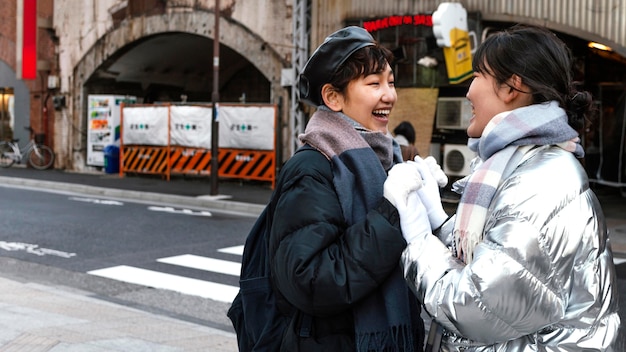
After several visits to the city, I’ve come to realize there’s a lot to learn to make the most of your time and avoid getting lost or facing trouble. Recently, I was sharing a list of tips with some colleagues who are heading there soon, and I thought it might be helpful for others too. So if you’re planning your first trip to Tokyo, here are some great tips to get you started.
Have the name and address of your hotel written in Japanese. This can be a lifesaver if you need to take a taxi or ask for directions. Also, make a note of the nearest subway stop and the Japanese name of your hotel, as it might differ from the English one.
Always carry your passport with you. While it might be another thing to keep track of, you can be asked to show identification, especially in areas popular with foreigners like Roppongi.
Don’t open the back door of a taxi yourself. The driver will handle it for you both when you get in and out. I learned this the hard way when I was scolded for doing it myself!
Remember that subways and trains stop running at midnight. Plan accordingly to avoid expensive taxi rides back to your hotel, unless you’re within a few kilometers of where you need to be.
Learn a few basic Japanese words and phrases. Knowing how to say numbers, hello, goodbye, thank you, and excuse me (sumi-masen) can go a long way. It’s also useful to know how to ask where the bathroom is and to express any dietary restrictions.
Many signs in Tokyo are also in English, making it easier to navigate without knowing much Japanese. Most major stations have English information; just look around a bit if you don’t see it immediately.
Tipping is not customary in Japan, and it’s often refused. Even rounding up a fare in a taxi might be met with disapproval.
Gift-giving is a common practice in Japan. If you’re meeting or visiting someone, it’s thoughtful to bring a gift that represents your hometown.
Consider getting a Suica or PASMO card for ease of travel on public transport. The initial cost is 500 Yen, but it simplifies your commute significantly.
If you want to sleep in, call housekeeping ahead of time. In many Japanese hotels, the “Do Not Disturb” sign might not be enough to prevent a wake-up call.
Understanding that “impossible” or “difficult” usually means “no” can help you navigate conversations without frustration. Persisting could lead to unnecessary tension.
Tokyo’s vastness means you should plan your routes and timing carefully. With 23 wards and extensive subway lines, you could find yourself on a train for 30-40 minutes.
Locate working ATMs, as many Japanese bank ATMs won’t accept foreign cards. Citibank, HSBC, and even post office ATMs are reliable options.
Carry a hand towel with you, as many public restrooms don’t offer paper towels. You’ll often find people handing out tissues on the street with advertisements.
Buy your Japan Rail pass before you arrive in Japan. This pass saves money on expensive train tickets if you plan to travel outside Tokyo.
Remove your shoes before entering someone’s home or some restaurants. Look for a designated area with a different flooring level as a cue.
Don’t be afraid to explore the city, even if you fear getting lost. Tokyo is big but welcoming, and many of my best memories come from unplanned adventures.
Be cautious in areas like Roppongi, where touts might try to lure you into bars, clubs, or other establishments with tempting offers. These can lead to unexpectedly high costs or even dangerous situations.
For more on planning your trip, check out this great 5-day itinerary for Tokyo!